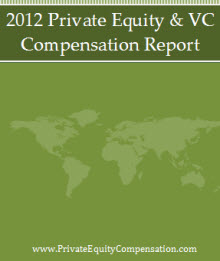Can it Getting Any Worse for Venture Funds?
Few saw it coming but few are surprised by the recent cliff dive of venture fund raising following a teasingly positive beginning for 2011 exit activity. The recent reports out of the National Venture Capital Association that show improved venture returns over the prior year also paints a grim picture for the industry as it posted its worst quarter of fund raising in over eight year. The sudden shift in prospects for venture investors has many concerned that a turnaround is not in the immediate offing which could alter the venture capital landscape in the future.
The returns reported for the first half of 2011 wouldn’t be characterized as stellar, but they were markedly improved over the prior year and second quarter returns pushed the 10-year investment period into the positive for the first time since 2009. But, the modest returns belied the optimism generated by what was projected to be a landmark year for IPOs. Then it hit the wall.
Caught in the crosswinds of slower than expected business activity and a panicked stock market, the big name IPOs, such as Groupon, Zynga, Facebook, and Yelp were suddenly grounded by the receding tide of investor enthusiasm. If it had been for the resurgence of private equity and secondary sales, investor distributions may have dried up completely in the second and third quarters.
Then, another NVCA report confirmed everyone’s worst fears, and that is that funding is on the decline. The report showed that venture capital firms raised the least amount of money during the third quarter in eight years. At the current pace, total funds raised may not even approach half of the $30 billion raised in 2007, and it could turn out to be the worst year in the 4 years since.
It’s apparent that the unsteady market and deteriorating distributions have spooked the larger limited partners, such as the endowments and the pension funds, into reining in their venture investments.
Of greater concern is the stunning drop in the number of firms actually raising money as it was reported that only 52 of the 460 active venture funds managed to raise any money. With the number of active funds already down by half since the dot com days, it’s not inconceivable that we will see the number decline precipitously again. Further consolidation may be the only answer for the top 50 venture funds which may also be forced to reduce the size of their deals or shed less promising ventures in order to stay afloat.
With little economic improvement seen over the next 12 months, the venture landscape may undergo a transformational change that could have an enduring impact of capital formation and the incubation of innovation. As VCs retrench with smaller investments into more target niches, many promising companies may be passed over.
The big loser in all of this may be the U.S. economy which is on life support and needs a constant infusion of risk capital for any hope of gaining a beat. It’s a Catch 22 in that venture investors may hold on to their money until they see a spark in the economy and the markets, yet the economy needs a spark from capital investments that may be drying up. It may not be until after next year’s election that we see a break in the logjam. By then, we could be looking at whole new venture capital landscape.


